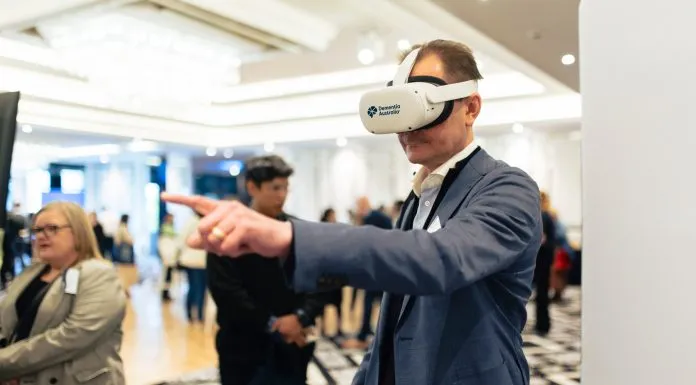In this guest post, Sue Watts, a dementia advocate with Dementia Australia, calls for urgent investment in dementia-specific training across health, aged care, and emergency services. Drawing from her experience caring for her husband, she highlights system-wide gaps. She stresses the need for compassionate, evidence-based education to improve care and dignity for people living with dementia.
My husband, Gene, lived with vascular dementia and Parkinson’s disease. For several years I was his carer at home, which required multiple visits to hospitals and clinical appointments. Later he spent nearly three years in residential aged care. He passed away in June 2024.
Throughout this journey, I saw firsthand how critical the knowledge and skills of staff across health and aged care is in shaping the quality of life and system interactions for someone living with dementia. While many of the staff Gene encountered from different areas of the system were kind and well-meaning, most appeared to have little, if any, understanding about dementia and dementia care. This meant that too often, his behaviours were misunderstood, and his needs were not met in a way that truly supported his dignity or wellbeing.
This is not the fault of the workforce; the system simply doesn’t provide enough support for them. And because of that, the people in their care can suffer.
At times, the consequences of inadequate training were deeply confronting. I witnessed distressing incidents — including a person with dementia defecating in a hallway — not because of the person’s condition alone, but because staff didn’t know how to respond to the behaviours dementia can bring.
These were not one-off events; they happened often and were clear signs of a system that continues to fail both people living with dementia and staff. When staff aren’t trained to recognise the unmet needs behind these behaviours, people living with dementia are left to suffer indignity that could and should be prevented.
During Gene’s time in care, I often had to advocate for his needs across a range of issues. I also found myself supporting other families who didn’t know how or where to advocate for their loved ones. It can be a lonely and disempowering experience.
Since then, I’ve become an active advocate for Dementia Australia and a strong supporter of improved dementia education and policy reform. I’ve contributed to research projects and training initiatives. I’ve spoken to hundreds of health professionals — most recently at an Australian Nursing and Midwifery Federation (ANMF) workshop — about the importance of lived experience in driving change.
My professional background is in academia and training. I’ve worked as a university lecturer, course director and education specialist, including leading a major MBA program in the UK. I hold qualifications in business, counselling and workplace training.
I’ve seen how education can empower people, lift standards and transform systems. Dementia care must be no exception!
Most people, including decision makers, do not know about or understand the issue of an untrained workforce unless dementia affects them or their loved one. It is heartbreaking to see a person with dementia being regarded as ‘acting out’ or treated like a child. I want all staff to think – what training would they expect staff to have if it were their mum, dad, partner or even themselves in the future. All people living with dementia deserve to be treated with respect and skilled care, not only because they are human beings with an unfortunate condition, but for the lives they have led.
We have the passion. We have the expertise. What we need now is action. We need leadership from the government to embed dementia-specific training across not only the aged care workforce, but also within hospitals, acute care settings and emergency services.
Dementia Australia is calling for urgent investment in building the capability of the health, disability, aged care workforce to provide high-quality care and support for people living with dementia.
Tasmania has an opportunity to lead the way by investing in practical, evidence-based solutions, like D Esc, innovative virtual reality training that helps staff learn how to safely and compassionately de escalate behavioural emergencies related to dementia. This training could be delivered across the hospital system. I was heartened by the pledge from the Tasmanian Liberals who have committed to this training during this election campaign. This should be supported by all parties and I call on Tasmanian Labor, Greens and Independents to make the same pledge so the almost 11,000 Tasmanians living with dementia and the people involve in their care can be assured dementia care training and education is a priority for everyone elected to the next parliament.
People with dementia deserve to be supported by staff who understand their condition.
Families deserve the peace of mind that their loved ones are receiving care that is informed, compassionate and skilled. Delivering high-quality dementia-specific training won’t fix everything, but it’s a critical step toward the kind of health, aged care and disability systems Australians expect and deserve. And it’s a step Tasmania can take right now to improve care experiences not only in aged care, but in every setting where people living with dementia interact with the health system.











